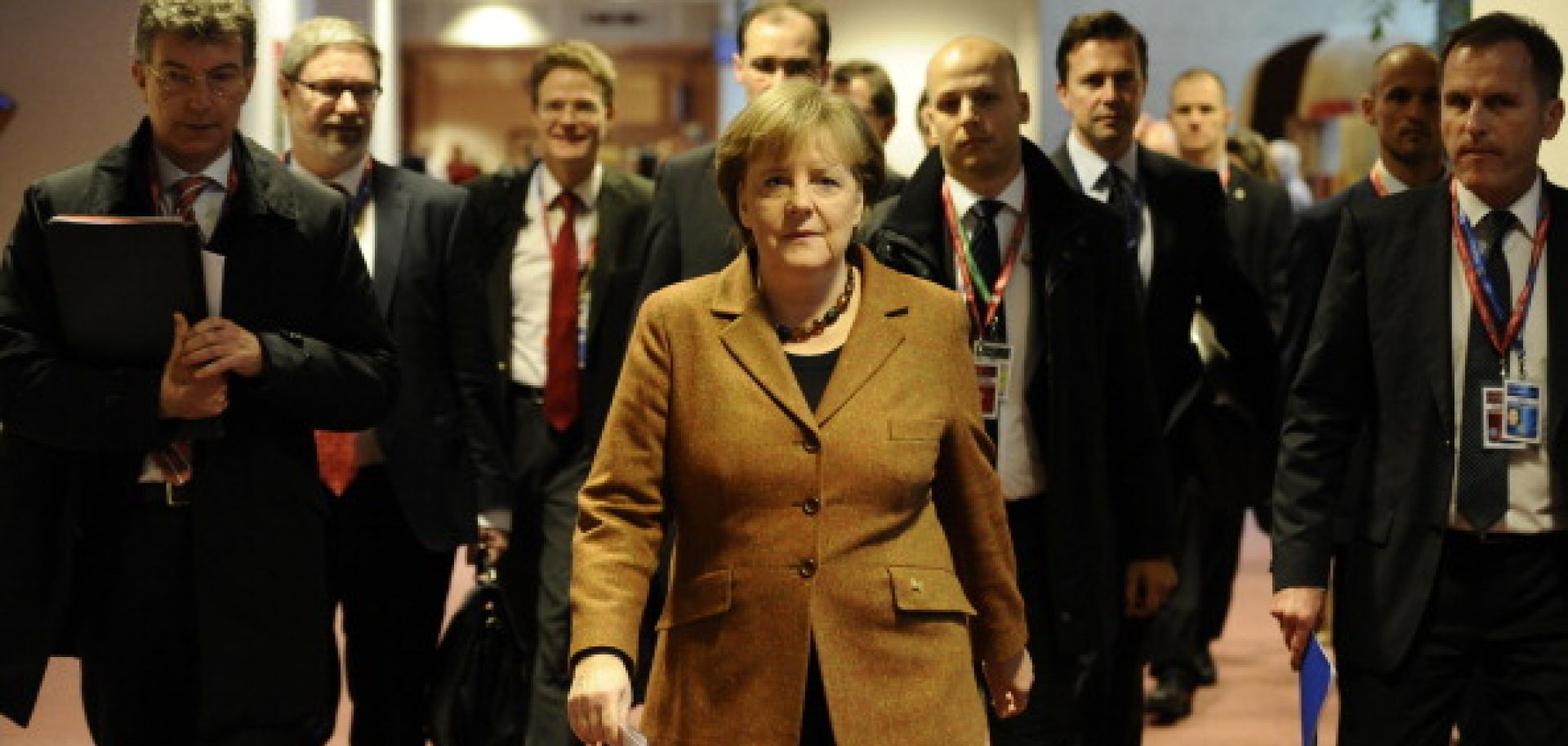ASSESSMENTS
Enforcing Budgetary Discipline in the Eurozone
Mar 13, 2012 | 12:16 GMT

LIONEL BONAVENTURE/AFP/Getty Images
Summary
Twenty-five EU leaders (all but those from the United Kingdom and the Czech Republic) signed a treaty March 2 committing eurozone members to increased fiscal responsibility. The "fiscal compact," as it is known, requires signatory eurozone members to enact constitutional amendments or equally binding national legislation enforcing EU-mandated budget constraints and stipulates corrective mechanisms to be automatically enacted at a national level if a country deviates significantly from these constraints. The treaty will go into force when at least 12 of the 17 eurozone member states ratify it, after which participating countries have one year to implement mechanisms to sufficiently enforce budgetary discipline. Germany heavily pushed for the fiscal compact, demanding it in exchange for continued financial assistance to the rest of Europe. As the second-largest exporter in the world, Germany benefits greatly from the eurozone's common market and single currency, and holding the bloc together is thus a key concern for Berlin. For this to happen, member states need to have more sustainable finances, which means running a balanced budget and having low government debt. A state's failure to do so will mean unsustainable debt and defaults that, because of the eurozone's heavy economic and financial integration, puts other states at risk of default. Thus far, Germany, with the help of the other eurozone countries and the International Monetary Fund, has prevented such defaults by funding bailouts for Greece, Ireland and Portugal, but it understands that continuing to do so will be financially and politically unsustainable. Berlin would like the treaty to lay the groundwork for better budget management practices across the eurozone, but such an outcome is dubious, as evidenced by the failure of previous attempts to enforce national budgetary discipline through EU-level agreements and institutions.
Subscribe Now
SubscribeAlready have an account?
